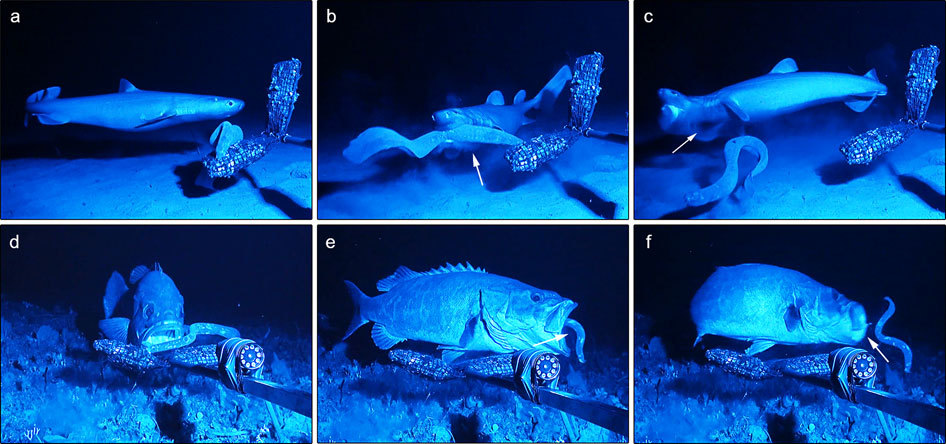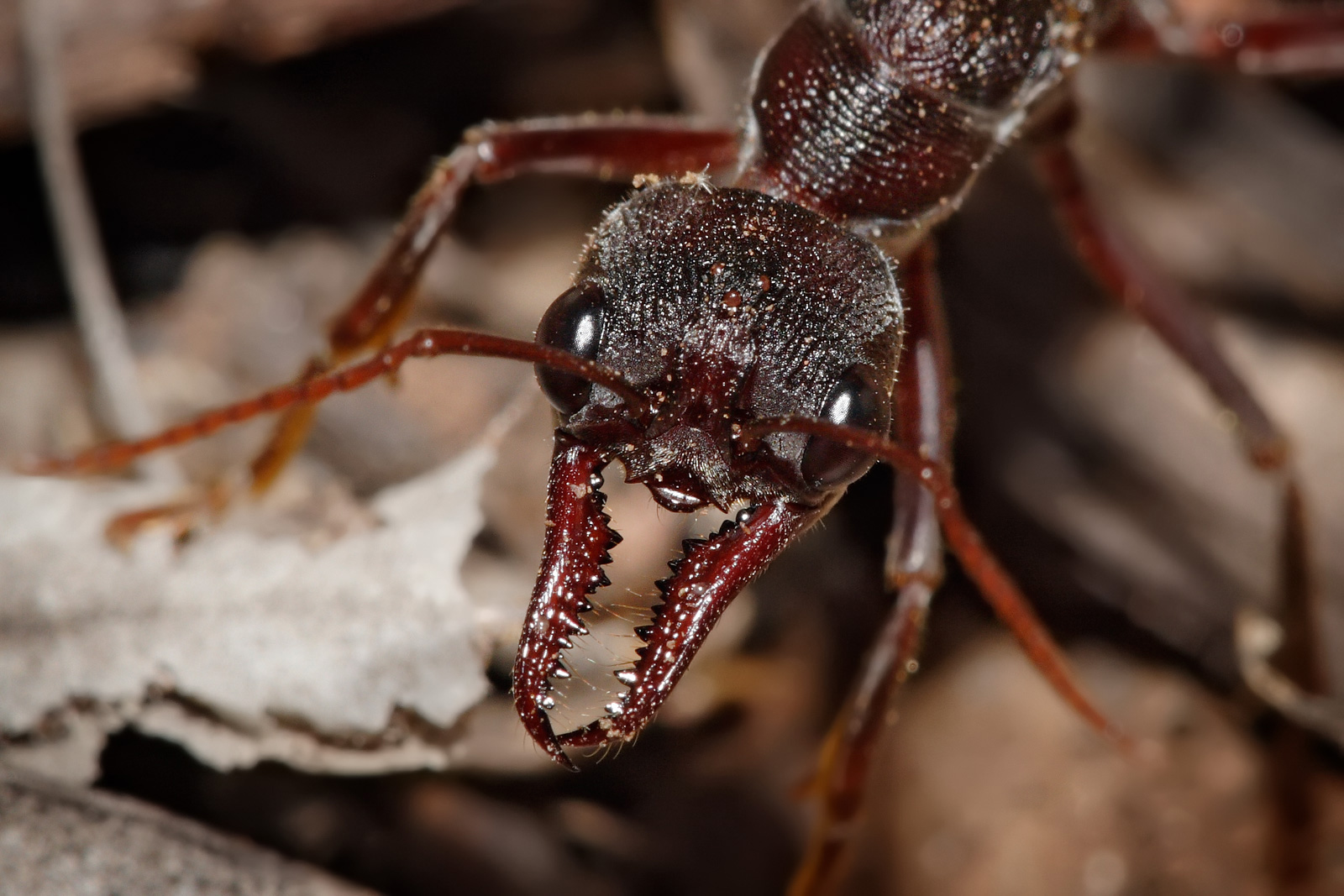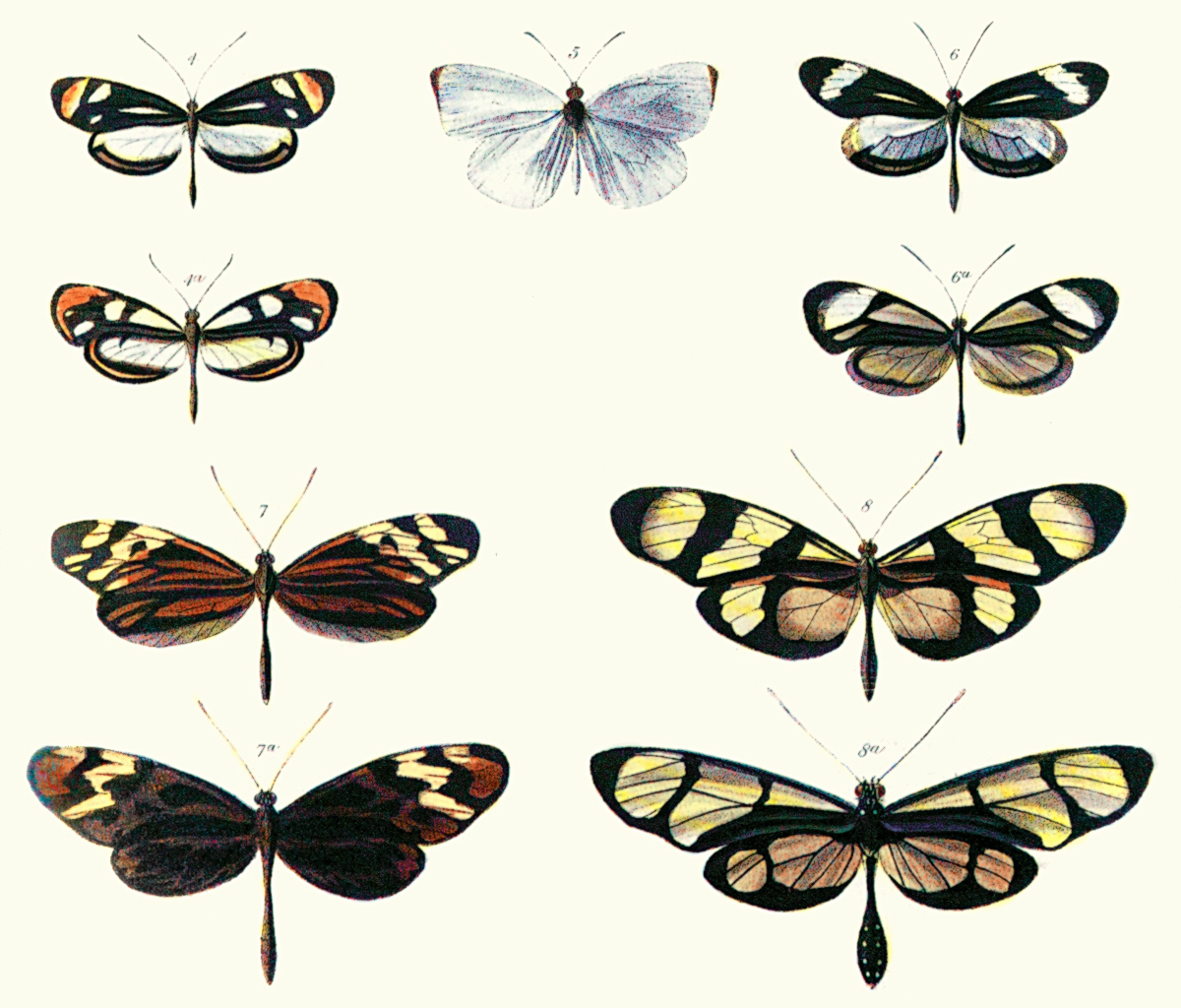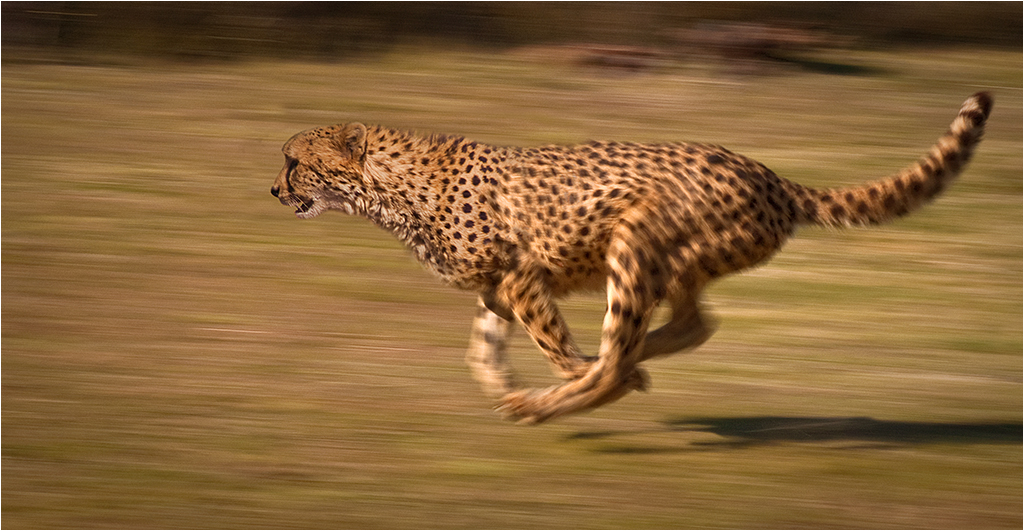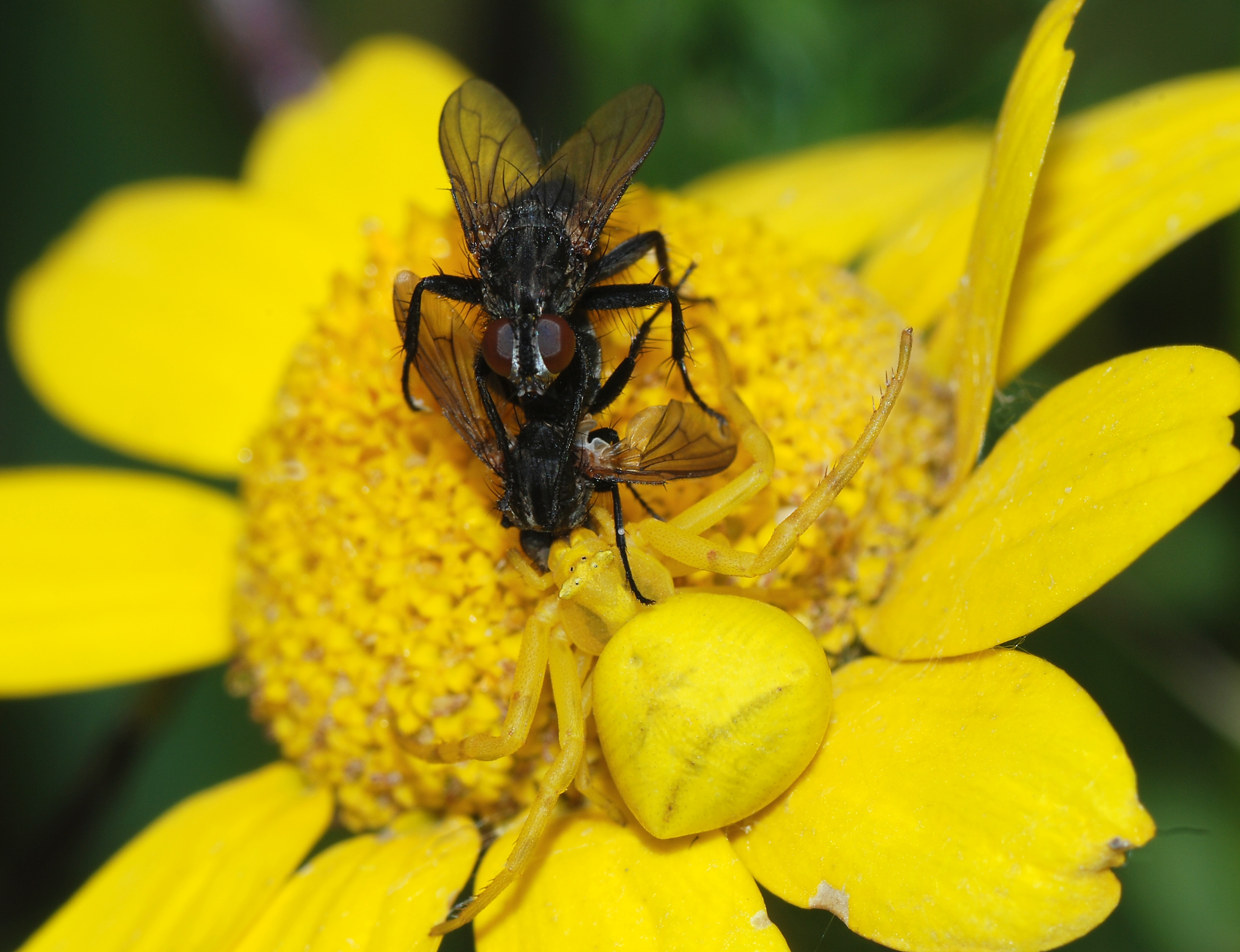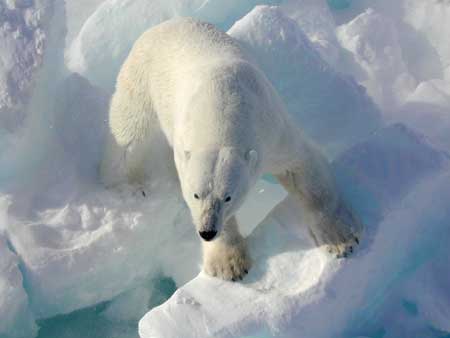|
Predatory
Predation is a biological interaction where one organism, the predator, kills and eats another organism, its prey. It is one of a family of common feeding behaviours that includes parasitism and micropredation (which usually do not kill the host) and parasitoidism (which always does, eventually). It is distinct from scavenging on dead prey, though many predators also scavenge; it overlaps with herbivory, as seed predators and destructive frugivores are predators. Predators may actively search for or pursue prey or wait for it, often concealed. When prey is detected, the predator assesses whether to attack it. This may involve ambush or pursuit predation, sometimes after stalking the prey. If the attack is successful, the predator kills the prey, removes any inedible parts like the shell or spines, and eats it. Predators are adapted and often highly specialized for hunting, with acute senses such as vision, hearing, or smell. Many predatory animals, both vertebrate ... [...More Info...] [...Related Items...] OR: [Wikipedia] [Google] [Baidu] |
Antipredator Adaptation
Anti-predator adaptations are mechanisms developed through evolution that assist prey organisms in their constant struggle against predators. Throughout the animal kingdom, adaptations have evolved for every stage of this struggle, namely by avoiding detection, warding off attack, fighting back, or escaping when caught. The first line of defence consists in avoiding detection, through mechanisms such as camouflage, masquerade, apostatic selection, living underground, or nocturnality. Alternatively, prey animals may ward off attack, whether by advertising the presence of strong defences in aposematism, by mimicking animals which do possess such defences, by startling the attacker, by signalling to the predator that pursuit is not worthwhile, by distraction, by using defensive structures such as spines, and by living in a group. Members of groups are at reduced risk of predation, despite the increased conspicuousness of a group, through improved vigilance, predator confus ... [...More Info...] [...Related Items...] OR: [Wikipedia] [Google] [Baidu] |
Ants Eating Cicada, Jjron 22
Ants are Eusociality, eusocial insects of the Family (biology), family Formicidae and, along with the related wasps and bees, belong to the Taxonomy (biology), order Hymenoptera. Ants evolved from Vespoidea, vespoid wasp ancestors in the Cretaceous period. More than 13,800 of an estimated total of 22,000 species have been classified. They are easily identified by their geniculate (elbowed) Antenna (biology), antennae and the distinctive node-like structure that forms their slender waists. Ants form Ant colony, colonies that range in size from a few dozen predatory individuals living in small natural cavities to highly organised colonies that may occupy large territories and consist of millions of individuals. Larger colonies consist of various castes of sterile, wingless females, most of which are workers (ergates), as well as soldiers (dinergates) and other specialised groups. Nearly all ant colonies also have some fertile males called "drones" and one or more fertile females ... [...More Info...] [...Related Items...] OR: [Wikipedia] [Google] [Baidu] |
Mimicry
In evolutionary biology, mimicry is an evolved resemblance between an organism and another object, often an organism of another species. Mimicry may evolve between different species, or between individuals of the same species. Often, mimicry functions to protect a species from predators, making it an anti-predator adaptation. Mimicry evolves if a receiver (such as a predator) perceives the similarity between a mimic (the organism that has a resemblance) and a model (the organism it resembles) and as a result changes its behaviour in a way that provides a selective advantage to the mimic. The resemblances that evolve in mimicry can be visual, acoustic, chemical, tactile, or electric, or combinations of these sensory modalities. Mimicry may be to the advantage of both organisms that share a resemblance, in which case it is a form of mutualism; or mimicry can be to the detriment of one, making it parasitic or competitive. The evolutionary convergence between groups is driven b ... [...More Info...] [...Related Items...] OR: [Wikipedia] [Google] [Baidu] |
Pursuit Predation
Pursuit predation is a form of predation in which predators actively give chase to their prey, either solitarily or as a group. It is an alternate predation strategy to ambush predation — pursuit predators rely on superior speed, endurance and/or teamwork to seize the prey, while ambush predators use stealth, luring, the use of surroundings and the element of surprise to capture the prey. While the two patterns of predation are not mutually exclusive, morphological differences in an organism's body plan can create an evolutionary bias favoring either type of predation. Pursuit predation is typically observed in carnivorous species within the kingdom Animalia, such as cheetahs, lions, wolves and early ''Homo'' species. The chase can be initiated either by the predator, or by the prey if it is alerted to a predator's presence and attempt to flee before the predator gets close. The chase ends either when the predator successfully catches up and tackles the prey, or w ... [...More Info...] [...Related Items...] OR: [Wikipedia] [Google] [Baidu] |
Aggressive Mimicry
Aggressive mimicry is a form of mimicry in which predators, parasites, or parasitoids share similar signals, using a harmless model, allowing them to avoid being correctly identified by their prey or host. Zoologists have repeatedly compared this strategy to a wolf in sheep's clothing. In its broadest sense, aggressive mimicry could include various types of exploitation, as when an orchid exploits a male insect by mimicking a sexually receptive female (see pseudocopulation), but will here be restricted to forms of exploitation involving feeding. An alternative term Peckhamian mimicry (after George and Elizabeth Peckham) has been suggested, but is seldom used. For example, indigenous Australians who dress up as and imitate kangaroos when hunting would not be considered aggressive mimics, nor would a human angler, though they are undoubtedly practising self-decoration camouflage. Treated separately is molecular mimicry, which shares some similarity; for instance a virus ma ... [...More Info...] [...Related Items...] OR: [Wikipedia] [Google] [Baidu] |
Warning Coloration
Aposematism is the Advertising in biology, advertising by an animal to potential predation, predators that it is not worth attacking or eating. This unprofitability may consist of any defences which make the prey difficult to kill and eat, such as toxicity, venom, foul taste or smell, sharp spines, or aggressive nature. These advertising signals may take the form of conspicuous animal coloration, coloration, sounds, odours, or other perception, perceivable characteristics. Aposematic signals are beneficial for both predator and prey, since both avoid potential harm. The term was coined in 1877 by Edward Bagnall Poulton for Alfred Russel Wallace's concept of warning coloration. Aposematism is exploited in Müllerian mimicry, where species with strong defences evolve to resemble one another. By mimicking similarly coloured species, the warning signal to predators is shared, causing them to learn more quickly at less of a cost. A genuine aposematic signal that a species actually ... [...More Info...] [...Related Items...] OR: [Wikipedia] [Google] [Baidu] |
Ambush Predation
Ambush predators or sit-and-wait predators are carnivorous animals that capture or trap prey via stealth, luring or by (typically instinctive) strategies utilizing an element of surprise. Unlike pursuit predators, who chase to capture prey using sheer speed or endurance, ambush predators avoid fatigue by staying in concealment, waiting patiently for the prey to get near, before launching a sudden overwhelming attack that quickly incapacitates and captures the prey. The ambush is often opportunistic, and may be set by hiding in a burrow, by camouflage, by aggressive mimicry, or by the use of a trap (e.g. a web). The predator then uses a combination of senses to detect and assess the prey, and to time the strike. Nocturnal ambush predators such as cats and snakes have vertical slit pupils helping them to judge the distance to prey in dim light. Different ambush predators use a variety of means to capture their prey, from the long sticky tongues of chameleons to the expandi ... [...More Info...] [...Related Items...] OR: [Wikipedia] [Google] [Baidu] |
Polar Bear (Ursus Maritimus) With Its Prey
The polar bear (''Ursus maritimus'') is a hypercarnivorous bear whose native range lies largely within the Arctic Circle, encompassing the Arctic Ocean, its surrounding seas and surrounding land masses. It is the largest extant bear species, as well as the largest extant land carnivore. A boar (adult male) weighs around , while a sow (adult female) is about half that size. Although it is the sister species of the brown bear, it has evolved to occupy a narrower ecological niche, with many body characteristics adapted for cold temperatures, for moving across snow, ice and open water, and for hunting seals, which make up most of its diet. Although most polar bears are born on land, they spend most of their time on the sea ice. Their scientific name means " maritime bear" and derives from this fact. Polar bears hunt their preferred food of seals from the edge of sea ice, often living off fat reserves when no sea ice is present. Because of their dependence on the sea ice, po ... [...More Info...] [...Related Items...] OR: [Wikipedia] [Google] [Baidu] |
List Of Feeding Behaviours
Feeding is the process by which organisms, typically animals, obtain food. Terminology often uses either the suffixes -vore, -vory, or -vorous from Latin ''vorare'', meaning "to devour", or -phage, -phagy, or -phagous from Greek φαγεῖν (), meaning "to eat". Evolutionary history The evolution of feeding is varied with some feeding strategies evolving several times in independent lineages. In terrestrial vertebrates, the earliest forms were large amphibious piscivores 400 million years ago. While amphibians continued to feed on fish and later insects, reptiles began exploring two new food types, other tetrapods (carnivory), and later, plants (herbivory). Carnivory was a natural transition from insectivory for medium and large tetrapods, requiring minimal adaptation (in contrast, a complex set of adaptations was necessary for feeding on highly fibrous plant materials). Evolutionary adaptations The specialization of organisms towards specific food sources is one of ... [...More Info...] [...Related Items...] OR: [Wikipedia] [Google] [Baidu] |
Camouflage
Camouflage is the use of any combination of materials, coloration, or illumination for concealment, either by making animals or objects hard to see, or by disguising them as something else. Examples include the leopard's spotted coat, the battledress of a modern soldier, and the leaf-mimic katydid's wings. A third approach, motion dazzle, confuses the observer with a conspicuous pattern, making the object visible but momentarily harder to locate, as well as making general aiming easier. The majority of camouflage methods aim for crypsis, often through a general resemblance to the background, high contrast disruptive coloration, eliminating shadow, and countershading. In the open ocean, where there is no background, the principal methods of camouflage are transparency, silvering, and countershading, while the bioluminescence, ability to produce light is among other things used for counter-illumination on the undersides of cephalopods such as squid. Some animals, such as chamel ... [...More Info...] [...Related Items...] OR: [Wikipedia] [Google] [Baidu] |
Biological Interaction
In ecology, a biological interaction is the effect that a pair of organisms living together in a community have on each other. They can be either of the same species (intraspecific interactions), or of different species ( interspecific interactions). These effects may be short-term, like pollination and predation, or long-term; both often strongly influence the evolution of the species involved. A long-term interaction is called a symbiosis. Symbioses range from mutualism, beneficial to both partners, to competition, harmful to both partners. Interactions can be indirect, through intermediaries such as shared resources or common enemies. This type of relationship can be shown by net effect based on individual effects on both organisms arising out of relationship. Several recent studies have suggested non-trophic species interactions such as habitat modification and mutualisms can be important determinants of food web structures. However, it remains unclear whether these findin ... [...More Info...] [...Related Items...] OR: [Wikipedia] [Google] [Baidu] |
Claw
A claw is a curved, pointed appendage found at the end of a toe or finger in most amniotes (mammals, reptiles, birds). Some invertebrates such as beetles and spiders have somewhat similar fine, hooked structures at the end of the leg or tarsus for gripping a surface as they walk. The pincers of crabs, lobsters and scorpions, more formally known as their chelae, are sometimes called claws. A true claw is made of a hard protein called keratin. Claws are used to catch and hold prey in carnivorous mammals such as cats and dogs, but may also be used for such purposes as digging, climbing trees, self-defense and grooming, in those and other species. Similar appendages that are flat and do not come to a sharp point are called nails instead. Claw-like projections that do not form at the end of digits but spring from other parts of the foot are properly named spurs. Tetrapods In tetrapods, claws are made of keratin and consist of two layers. The unguis is the harder external lay ... [...More Info...] [...Related Items...] OR: [Wikipedia] [Google] [Baidu] |
_with_its_prey.jpg)
